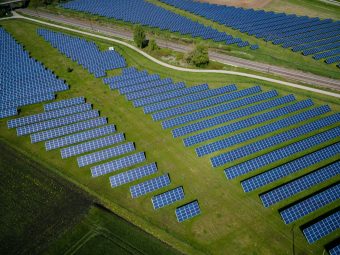In recent years, China has emerged as a major player in the development of Brazil’s energy infrastructure through significant investments. Recently, the presidents of the two countries signed 40 international agreements across various sectors. On this occasion, it was emphasized that China has been Brazil’s largest trading partner since 2009, with their bilateral trade reaching record levels last year, as stated on the Brazilian government’s website. This further solidified the strategic partnership between the two nations.
Chinese Projects Across Brazil

Brazil stands out for its renewable energy capacity, far exceeding the global average. While hydropower remains dominant, other alternative sources have also advanced significantly. In recent months, more than 80 percent of the total energy produced in Brazil came from renewable sources. In 2023, Brazil ranked sixth globally in installed solar energy capacity. By October 2024, solar capacities reached approximately 48 GW, according to Ember data.
One of the key projects illustrating the collaboration between China and Brazil is the Panati solar park. This massive project spans 840 hectares and includes 446,000 solar panels. Since its launch in June 2024, the park has significantly contributed to the stability of electricity supply and is expected to provide enough energy to power over 350,000 households annually. Additionally, during its construction, it created hundreds of jobs and continues to employ local residents.
More:
- New Auction Regulations – Greater Opportunities for Wind and Solar
- EBRD and EU Launch SME Go Green Programme in Serbia
- What Changes in the Energy Law Bring for the Renewable Energy Sector
The direct connection with China is through CTG Brazil, a subsidiary of the China Three Gorges Corporation established in Brazil in 2013. This fully Chinese-owned company plays a significant role in Brazil’s energy sector. With investments in 17 hydropower plants and 11 wind farms, CTG Brazil manages a portfolio with a total installed capacity exceeding 8 GW, positioning itself as the second-largest private energy producer in the country.
One notable project is the São Manoel hydropower plant, with a capacity of 700 MW, a joint venture between Brazilian and Chinese companies, including CTG Brazil.
Investments in Mining and Transmission Infrastructure

Chinese investments extend into the mining sector, where a Chinese investment consortium has acquired a 15 percent stake in CBMM, a Brazilian company leading in the production of niobium, a key material for steel and electronics manufacturing.
China is also heavily investing in electricity transmission projects in Brazil. The Belo Monte Transmission Line project, completed in two phases in 2017 and 2019, is part of a broader plan to enhance Brazil’s power transmission infrastructure. This project connects the northern region, rich in energy resources, to the industrialized southeastern region.
Notably, investments are also present outside the energy and mining sectors, with Chinese companies actively expanding their operations in Brazil by developing industrial capacities, particularly in electromobility. A prime example is BYD’s investment in a battery manufacturing facility in Manaus, which produces enough batteries annually to power 1,000 electric buses.
Energy portal





